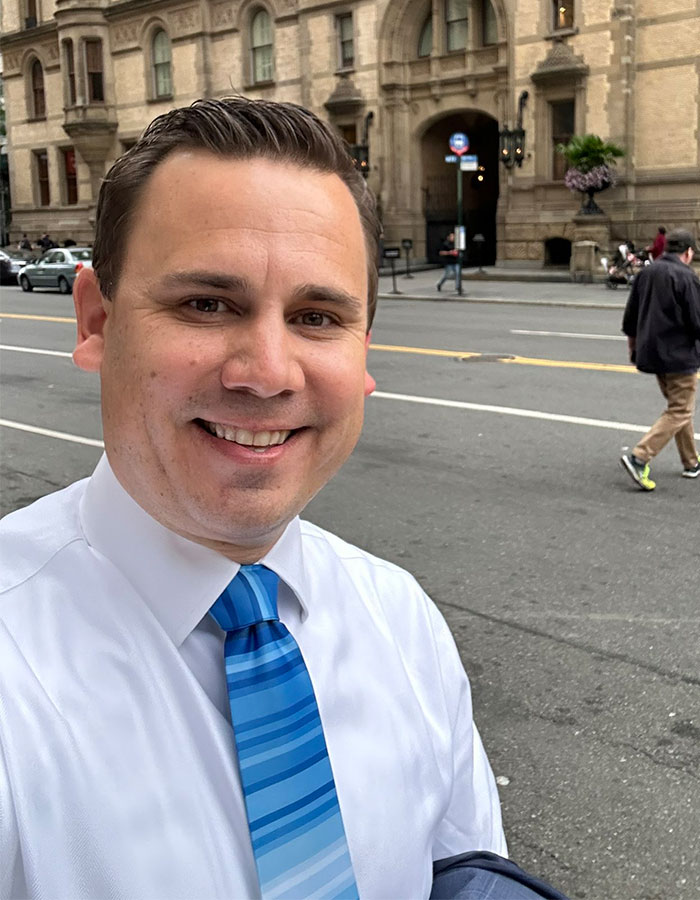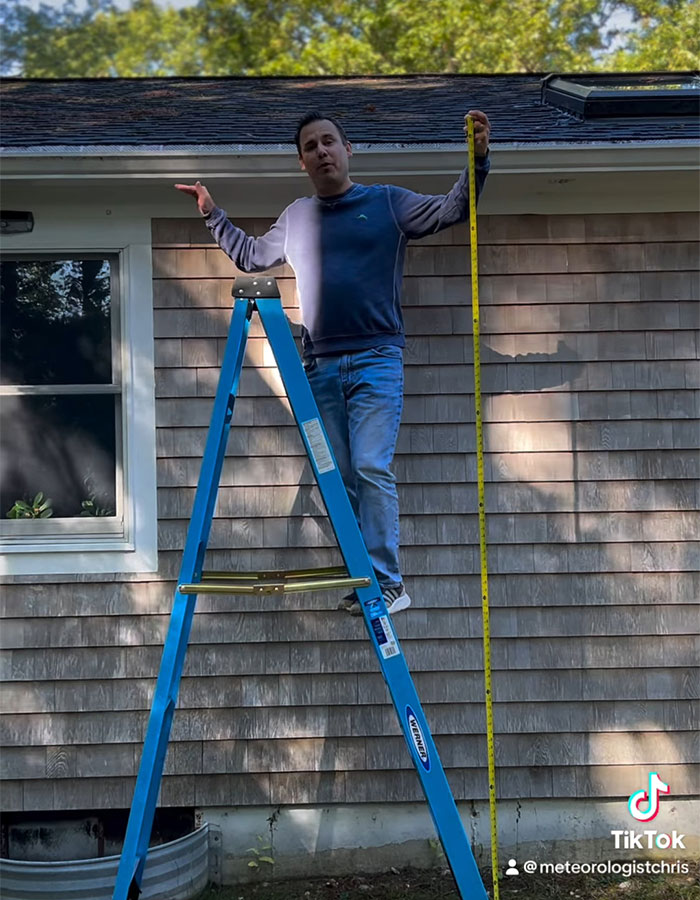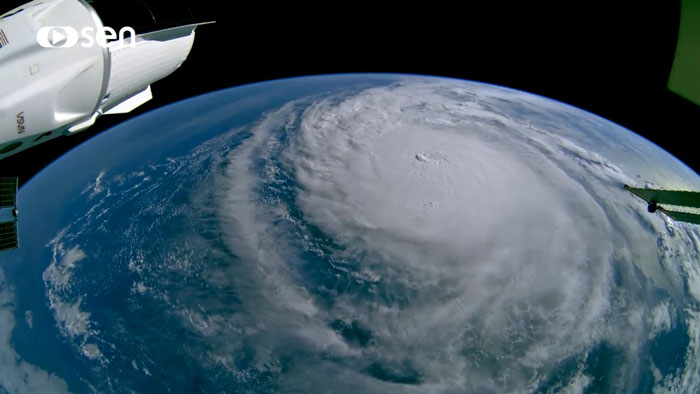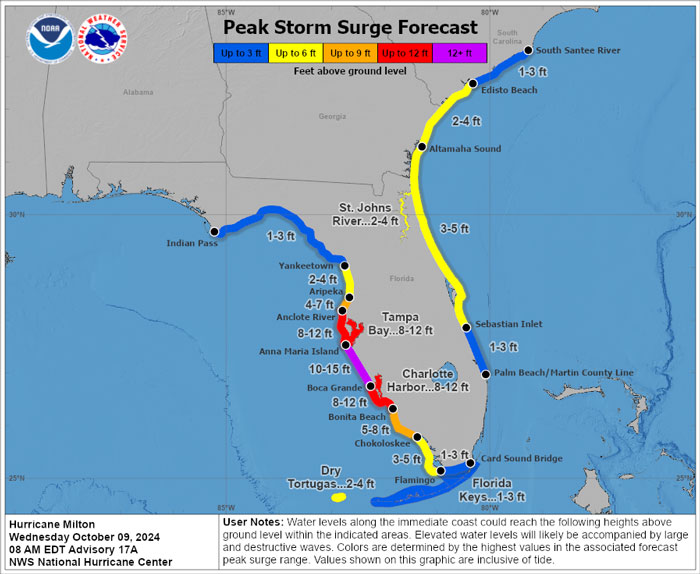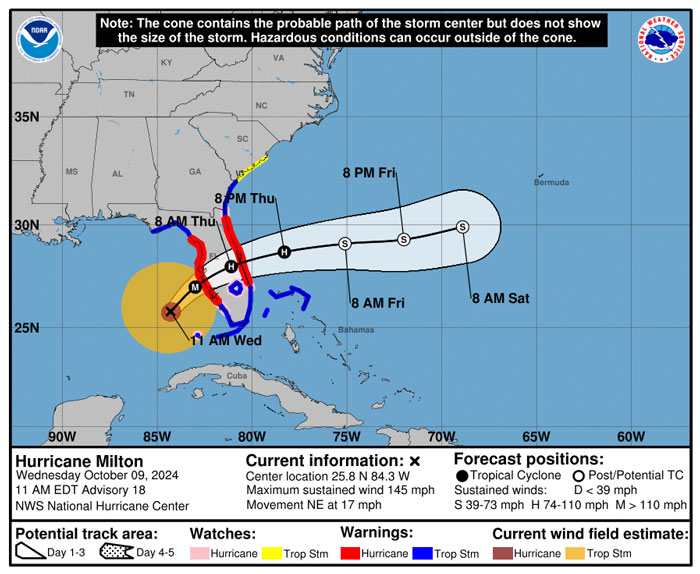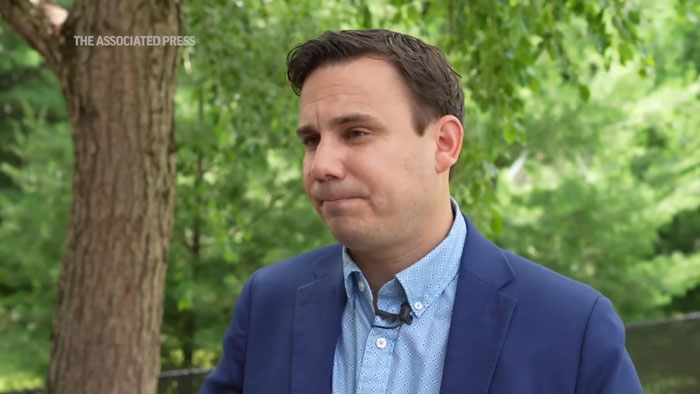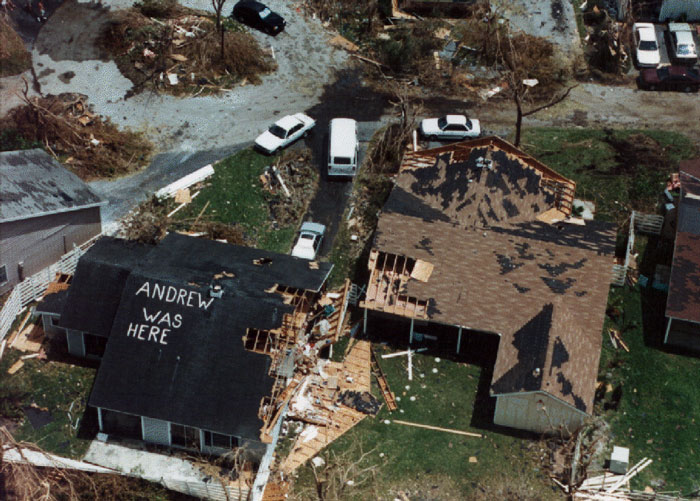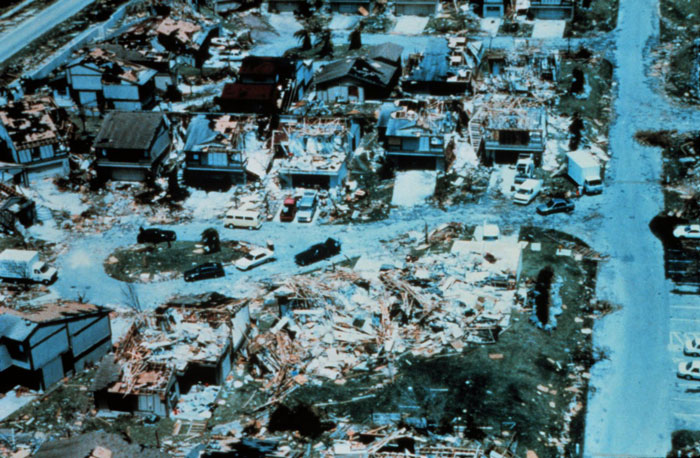Censorship, harassment, and death threats are just some of the obstacles that former CBS TV meteorologist and Senior Climate Scientist Chris Gloninger had to overcome while trying to inform his viewers about climate change.
Moreover, during his 20-year career, he warned people about the increasing likelihood of disasters such as Hurricane Milton if rising temperatures were not managed in time. However, his superiors asked him to stop for fear of a drop in ratings.
Gloninger also received several menacing messages from climate change deniers, including threats against him and his family, which forced him to leave his career as a TV reporter behind.
Now, with the storm threatening to hit the Tampa Bay area of Florida with unprecedented wind speeds, the climate scientist spoke exclusively with Bored Panda about his forecast, including when it will hit the coast and the damage it’s expected to cause.
Former TV meteorologist Chris Gloninger spent over 20 years warning viewers about the consequences of climate change
Image credits: ChrisGloninger
“My forecast is that Milton will make landfall during the early morning hours of Thursday,” the meteorologist told Bored Panda.
For Gloninger, the upcoming catastrophe could’ve been avoided had carbon emissions been controlled in time, but now he believes we are way past the point of no return.
“Some people, especially on social media, refuse to recognize that these horrific events are largely due to our own negligence,” he added, expressing frustration over his failed attempts to inform people about the effects of global warming.
“Some people prefer to ignore facts and lean on conspiracy theories instead of facing the truth. It’s difficult for them to accept that we are playing a part in this.”
Image credits: meteorologistchris
The former TV meteorologist received his first threat in July 2022, sharing several emails he received on X from angry viewers who threatened to give him “a welcome he will never forget.” Among those responsible was a 63-year-old man from Iowa who later pleaded guilty to third-degree harassment.
Despite fearing for his family, Gloninger remained steadfast in his climate coverage. However, according to him, his bosses at the time began censoring him out of fear of declining ratings.
“They left me no choice but to leave,” he stated. “I spent a year trying to process the harassment, but the station telling me to stop informing people of the consequences of climate change was the last straw.”
Experts such as Gloninger believe that Milton’s record-breaking speeds call for a new standard to be set, with some labeling it the first “Category 6” hurricane in history
Image credits: sen
Gloninger laments that his warnings might’ve finally come true, as Hurricane Milton’s intensity grew so strong that experts believe it has broken the limit of the scales used to measure wind strength for the first time in more than 50 years.
For instance, Noah Bergen, a meteorologist from Florida, labeled the 200 mph winds as “astronomical” and proposed creating a new measurement category: Category 6.
Image credits: nhc / noaa
For comparison, the last Category 5 storm to hit Florida was Hurricane Andrew in 1992. With top winds of 174 mph, it was the costliest natural disaster in American history at the time, causing $30 billion in damages and claiming the lives of more than 40 people.
“We are experiencing an increasingly unstable climate, with unprecedented disasters of increasing frequency that’s forcing us to redefine the upper limits of our measurements,” Gloninger explained.
Image credits: NHC / NOOA
For decades, meteorologists have used the 1971 Saffir-Simpson hurricane scale to classify hurricanes based on their intensity. The scale is divided into five grades, with each grade representing an increase of 20 mph.
The current upper limit is Category 5, with a threshold of 157 mph or higher winds. It can destroy a high percentage of homes, causing total roof failure and wall collapse, as well as fallen trees and power poles, which can isolate residential areas and complicate rescue efforts.
“Category 5 is already considered catastrophic. What are we supposed to call an eventual Category 6? What’s more catastrophic than this? We need to come up with a new definition,” he added.
The warmer the seas become, the stronger each hurricane will be; as Gloninger explains, the two phenomena are intrinsically linked
Image credits: meteorologistchris
The correlation between global warming, carbon emissions, and Hurricane Milton couldn’t be more evident for the meteorologist.
“The increase in earth’s temperature is directly related to an increase in the speed of storms,” Gloninger stated.
“For every degree the sea gets warmer, wind speeds increase by 4-5%, and while this might not sound like much initially, it translates to an astounding 50% in the destructive potential of hurricanes.”
Image credits: Associated Press
According to data provided by the Intergovernmental Panel on Climate Change (IPCC), the Earth’s temperature increased by 0.5 degrees above pre-industrial levels in 1980. Over the next 37 years, temperatures doubled to 1.0 degrees in 2017, then increased by the same amount to 1.5 degrees this year.
“We’re past the point of mitigation; we need to talk about adaptation,” Gloninger explained, adding that temperatures are likely to continue rising over the next few years.
Official data shows that each hurricane results in billions of dollars in damages, with developing countries being the most affected
Not all countries will be affected in the same manner; however, over one-third of the world’s carbon emissions come from China (33%) and the United States (12.6%), according to data from Climate Watch.
“Developed countries will have to pay a price,” the scientist argued. “Developing countries are feeling the worst effects of climate change, with changes to their agriculture and structural losses their economies aren’t able to easily recover from.”
Image credits: National Hurricane Center
According to the National Oceanic and Atmospheric Administration (NOAA), each tropical hurricane causes an average of more than $22 billion in damages per event. The 2024 season has broken records by hosting 13 named cyclones so far, with Hurricanes Helene and Milton being the latest.
Despite the grave climatic situation, Gloninger remains hopeful, believing that Hurricane Milton will serve as a wake-up call for those who have denied climate change over the years.
Image credits: NOAA / National Weather Service
“I believe that sentiment around climate change is starting to shift as more and more people have realized the intensity of current events have made it all but undeniable,” he explained.
According to the October edition of the Emerson College Polling report, around 60% of respondents in states such as Iowa, Kansas, Missouri, and Nebraska now believe that human activity influences climate change.
“It’s an important breakthrough,” the meteorologist, who continues to appear regularly on outlets like CNN and MSNBC, said about the increased awareness.
Chris Gloninger is a Senior Climate Scientist at Woods Hole Group, where he provides guidance and direction on climate-related hazards. Interested readers can check out his media appearances and inquire about his services on his website.
